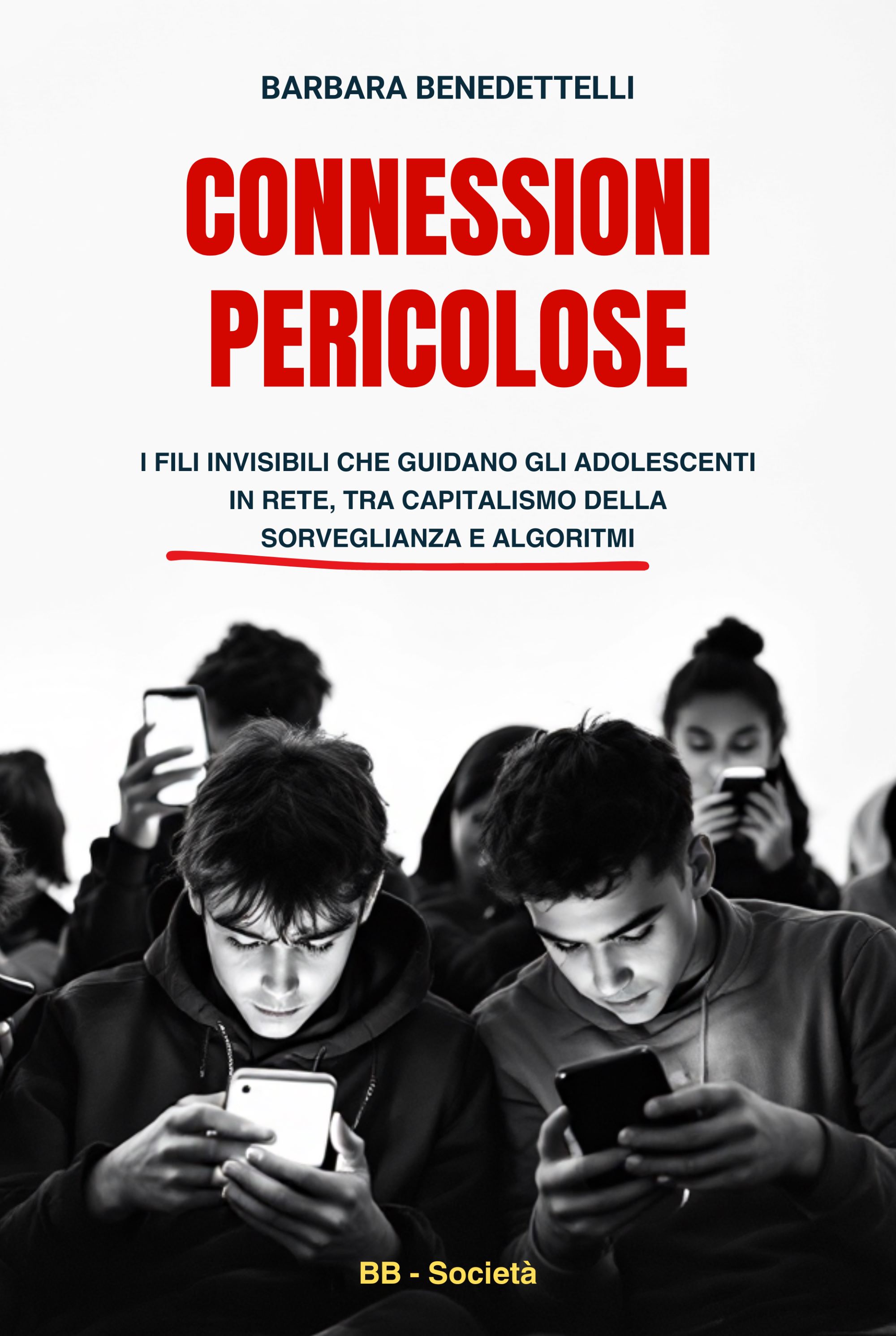Barbara Benedettelli returns to bookstores with “Connessioni Pericolose,” an essay that explores the impact of digital capitalism on our lives, starting from a key concept: attention. In this new work, the author focuses on how online platforms collect and use users’ personal data, turning them into raw material through algorithms that fuel the production of profits. The publication arrives at a time when technology advances at supersonic speed, compelling us to urgently reconsider the consequences of this evolution.
In the book, Benedettelli reflects on what she calls “tecno-demia,” a phenomenon that, according to the author, “affects people who are still unable to protect themselves,” exposing them to an environment where attention—and thus users’ time—becomes the most valuable commodity. It’s a process that involves everyone, especially young people, who are offered a rapidly expanding digital universe often without the necessary tools to navigate it consciously.
COVID-19 and the subsequent lockdowns accelerated this trend, providing Big Tech with fertile ground. According to Benedettelli, the pandemic allowed “experimentation” on millions of people forced to spend entire days online, including children, who found themselves in a period of crucial growth under conditions of “objective social withdrawal.” In this context, schools and families had to yield space to digital platforms, which became the new major agents of socialization.
“The search for users’ attention to monetize ads is driven by algorithms,” writes the author, emphasizing how these algorithms create, for each individual, a personalized flow of content that ultimately reinforces beliefs and biases in real “filter bubbles.” The result is an increasingly polarized public debate, where the supply of products—but also of ideas and lifestyles—is tailored to each user.
Benedettelli underscores the long-term effects: the attention economy risks replacing the traditional market economy, pushing us to stay connected as long as possible and turning us into unsuspecting protagonists of constant data extraction. In her book, the author questions the responsibilities of the platforms and the need to find a balance between innovation and safeguarding rights, especially for younger generations.
Using a direct style and numerous examples, “Connessioni Pericolose” warns of the dangers of a system that capitalizes on our time, revealing how the ease of using digital services can mask a sophisticated mechanism of control. Benedettelli poses concrete questions, such as: “How does all this happen? And above all, how do we break free?”, urging readers to consider a more ethical and conscious use of technology.
The book is available in major physical and online bookstores and provides an analytical tool for anyone wishing to better understand the relationship between technological innovation, the pandemic, and social change. With “Connessioni Pericolose,” Benedettelli offers a critical perspective on the digital world we inhabit, encouraging us not to let our guard down and to regain—where possible—genuine control over our attention.

